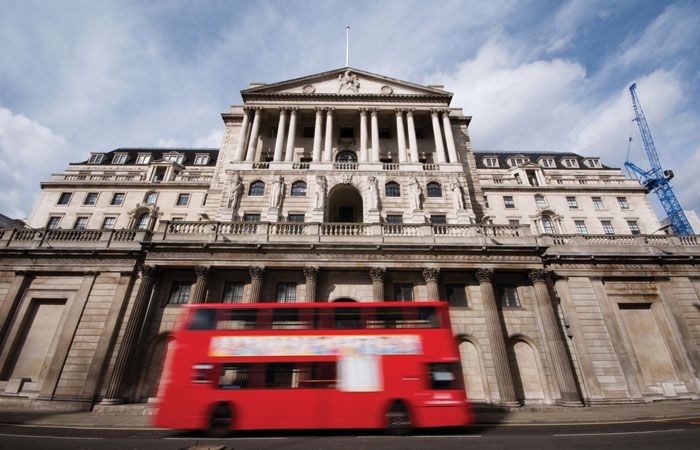
There has been mixed reaction from the sector to the latest interest rate rise announced today by the Bank of England.
MT Finance head of buy-to-let lending Marylen Edwards believes that while a reduction in the base rate would have been welcome news, another increase was necessary at this moment in time to combat stubbornly high inflation and this may help bring back some much-needed stability.
‘Hopefully this will be the last rise before we start to see a plateau,” Edwards says.’
PRIMIS, proposition director Vikki Jefferies believes lenders are already pricing in further base rate rises, predicting a peak of up to 5% in 2023.
“While the decision will undoubtedly push mortgage rates upwards in the short-term, the measures taken by the Bank of England are predicted to start bringing inflation back down in the second half, which will help to drive market activity in the latter stages of the year”.
She adds: “Headlines about rising interest rates will add to the financial pressure that many consumers already feel as a result of the cost-of-living crisis, especially given the rock bottom rates they have experienced in recent years.
“It is therefore the responsibility of lenders and brokers to bring perspective to the situation and to work together to proactively secure the best outcomes for their customers”.
Antony Roberts estate agent director Alex Lyle is disappointed that the Bank of England felt it needed to raise interest rates again this month, as a hold would have boosted the momentum seen in the housing market, particularly since Easter.
“Prices have been holding up on large family homes in particular and we have found the volume of sales in the first quarter up considerably compared with the same period last year. Yet another interest rate rise, with the potential for more to come, creates uncertainty, which is not good for the market”.
He adds: “Although some areas have proven remarkably resilient to increasing interest rates, inevitably this is less the case the higher they go.’
Glenhawk chief executive Guy Harrington questions the thinking behind the rate increase.
“The BOE may argue it is being forced into a corner, but this has to be the end of the rate hikes. As a tool for bringing down inflation, it’s clear the current approach is failing, so other solutions need to be found”.
He adds: The mortgage market is creaking under the strain, and distress is starting to show. It may already be too late to prevent an unprecedentedly painful winter for UK homeowners.”
SPF Private Clients chief executive Mark Harris says: ‘As interest rates hit 4.5 %, it feels like they are nearing their peak, if not there already, particularly with the Bank expecting inflation to fall sharply from April.
“Fixed rates are influenced by future base-rate movements and therefore not directly linked to what is decided this week. Indeed, several lenders have reduced their high loan-to-value fixed-rate mortgages in the past few days which will benefit first-time buyers, while the pricing of lower LTV deals has risen on the back of higher swap rates”.
Harris points out that with a variable-rate deal, the link between the lender’s variable rate and base-rate moves are less transparent. “The lender may decide to pass on none, some, all or more than the base-rate rise”.
Morgan Ash managing director Andrew Gething takes a similar line: “While those with fixed-rate mortgages are shielded from this outcome, it will once again be those with either tracker or variable-rate mortgages that take the biggest hit”.
He adds: “This may be just a proportion of the market at – around 1.5 million households – but we mustn’t forget all those due to come off low fixed-rate products. That’s especially true for those who are now sat on high SVRs, thanks to chain breaks or a prolonged remortgage process”.
Jackson-Stops chairman Nick Leeming explains that although the rise is only incremental, the decision continues to move the dial in the favour of savers not borrowers.
“Adding further grit in the gears for first-time buyers, this news will also be disappointing for anyone needing to remortgage”.
“For house prices, the picture remains a varied one by region and by price point. House price growth on a national scale may be levelling out somewhat, but in coastal locations with period properties and prime, central, locations the continually strong demand is fuelling demand”.
Leeming points out that changing working patterns with workers spending more than 50% of the working week in the office on average has made the appeal of commuter towns rise once again.
“Buyers will be keen to strike the balance between commutable convenience and greater space, but compromises will have to be made in order to clinch a purchase. Cash buyers are fortunate as they are less susceptible to a changeable mortgage market, often making themselves the preferred candidate in a competitive property race.”
Transaction volumes are likely to be impacted heavily according to Search Acumen director Andy Sommerville. “
“The effect on transaction volumes will be evident in the months that follow. Property lawyers may feel more pressure to compete for business, in which digital excellence as a competitive advantage will ensure greater transaction resilience, speed and efficiency.
He adds: “Until the industry adopts wholesale digital reform however, economic headwinds will continue to test market resilience with greater impact, from protracted transaction lengths to higher fall-throughs.”



